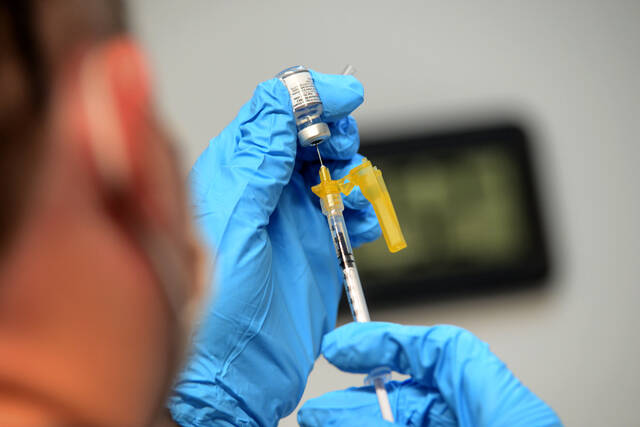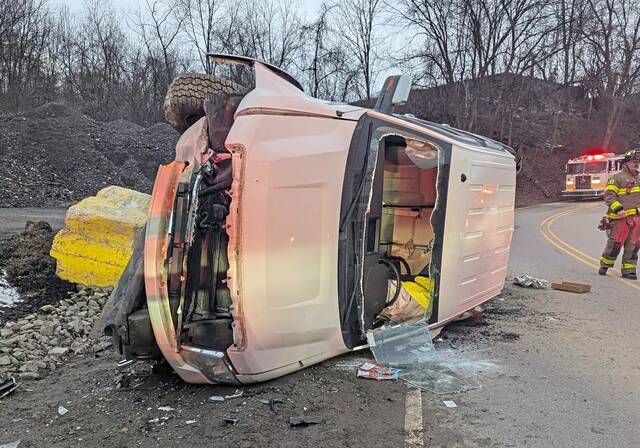Though new covid-19 subvariants continue to crop up, a local infectious disease doctor said there likely won’t be another massive wave of severe infections because of them.
New subvariants of the covid-19 omicron variant — like XXB, XBB and BQ.1 — are spreading throughout the United States, said Dr. Matt Moffa, an infectious disease specialist with Allegheny Health Network. The new subvariants have become more prevalent in the last three weeks or so, he said, though XBB transmission is still “pretty low” and only recently “starting to increase a little bit more.”
These new subvariants are more immune-evasive, but not more severe, Moffa said. People who aren’t severely immunocompromised generally don’t need to worry about these new subvariants any more than the prior strains, he said.
Question: What’s the difference between these subvariants and prior variants?
Answer: They’re still under the umbrella of omicron, so these are subvariants. The concern with these is that they’re more immune evasive. It means if you’re exposed, you have a better chance of a breakthrough infection — but that doesn’t mean it will cause a wave of increased severe disease, because most people are vaccinated.
The one concern is for people who are severely immunocompromised, like people who have had a stem cell transplant. Our monoclonal antibody treatment doesn’t seem to work with these variants. We do still expect that our antivirals will be effective.
Q: Do these variants seem to be more serious or likely to cause more severe illness?
A: No. That’s the main thing to focus on. The first problem with the new variants is we lost our monoclonal antibodies. Problem two is you might have more of a chance of a breakthrough infection, but we’re not seeing a wave of severe disease. People can expect a better chance for breakthrough infection, but as long as you’re not severely immunocompromised, we would not expect you to have a bad outcome.
Related:
• UPMC says new treatment Evusheld reduces covid risk for immunocompromised• UPMC study: Monoclonal antibody treatment reduces covid-19 hospitalization, death
Q: Are these variants more contagious?
A: I’m not sure we know for sure that it’s more contagious. It’s that (immune) evasiveness — it can infect people who may not have been infected with prior variants.
Q: Are the existing covid-19 vaccines still effective against these variants? Will breakthrough infections be less severe?
A: (As) we’ve seen the vaccines have been out, breakthrough infections are typically much more mild compared to someone who has no immunity. The risk of being admitted (to the hospital) for covid has dropped precipitously. If you’re vaccinated, you’re more likely to have no symptoms or very mild symptoms.
Q: How concerned should people be about these new subvariants as they are visiting with friends and family or traveling around the holidays? What precautions should people take?
A: It really depends what your social circle is. Unfortunately, the loss of these monoclonal antibodies means patients who are most immunocompromised — patients who have had a stem cell transplant, an organ transplant, chemotherapy — are still at the highest risk for severe disease. If you do have someone like that in your family, you really want to take precautions around them. You might want to consider improving ventilation where you’re at, maybe consider taking at-home tests before you get together so you don’t infect somebody’s who’s high risk.
You want to make sure, in general, that everybody is up to date with their vaccinations and they don’t show up if they’re sick. If nobody’s at risk, enjoy your holidays like you used to.








